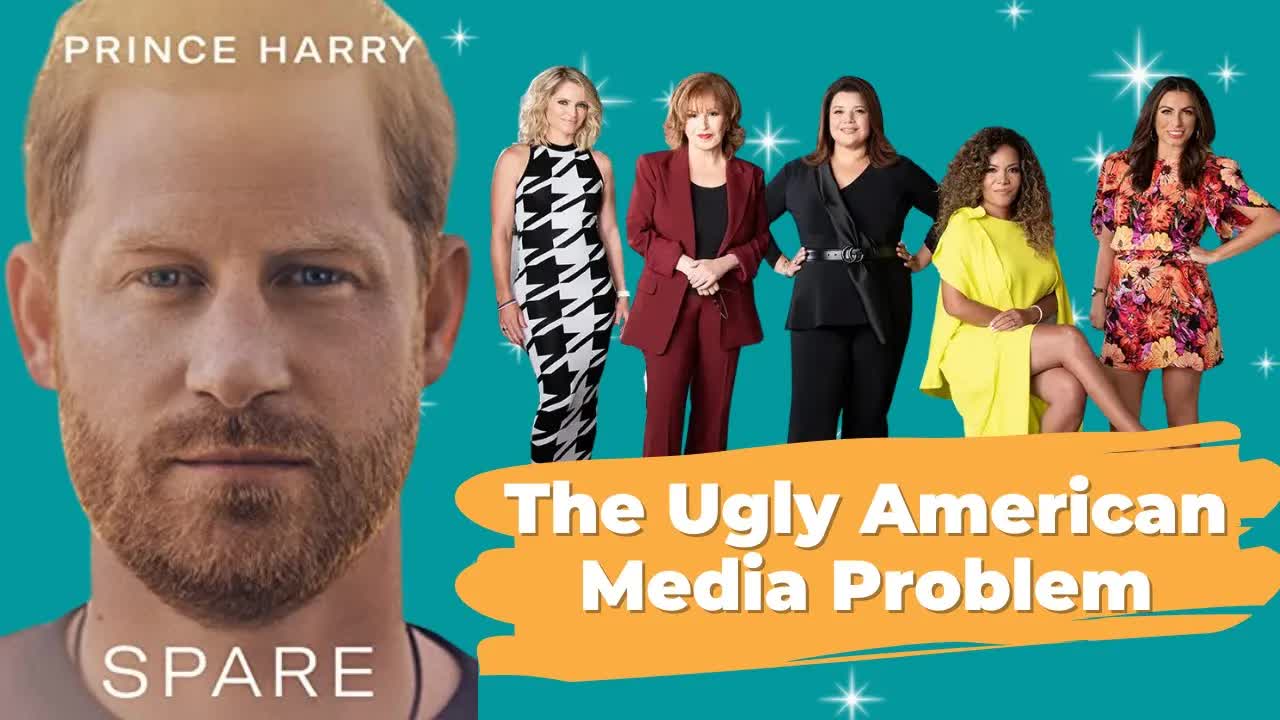In the ever-dramatic saga of the British royal family, recent revelations from Prince Harry have ignited heated discussions among commentators and fans alike.
With the release of his upcoming memoir, leaks have surfaced detailing explosive claims about his relationship with his brother, Prince William, and their shared history.
Conversations surrounding these revelations have sparked intense debates about race, privilege, and the responsibilities that come with royal life.
The discourse surrounding Harry’s memoir has been particularly colorful, with some commentators suggesting it’s time to gather around a metaphorical bonfire, marshmallows in hand, to dissect the chaos.
The American media, in particular, seems to be at the center of this frenzy, with figures like Sonny Hostin drawing sharp criticism for their perspectives on the royal family.
Critics argue that many in the media lack a fundamental understanding of the monarchy and its historical significance, viewing it through a distinctly American lens.
One of the more contentious points raised in discussions is the accusation of racism within the royal family, a claim that Hostin has been vocal about.
However, some argue that such assertions overlook the complexities of the situation.
Harry himself has suggested that his mother, Princess Diana, would be saddened by the current state of affairs between him and William, indicating a deep familial rift that many find troubling.
In a recent appearance, Harry hinted at feeling his mother’s presence more prominently since marrying Meghan, a statement that has drawn skepticism.
Critics have gone so far as to suggest that rather than his mother guiding him, darker influences may be at play.
This notion raises questions about the dynamics within the family and the motivations behind Harry’s public disclosures.
The argument continues as to why William would allegedly confront Meghan if he truly cared about her well-being.
Observers point out that as the future king, it would be in William’s best interest to support Meghan’s integration into the royal family.
Yet, some speculate that feelings of being overshadowed by the couple’s popularity may have fueled tensions.
The discussion took an interesting turn when commentators questioned the motives behind Harry’s public revelations.
Some suggest that the royal family’s past actions, including alleged leaks to the press, may have driven Harry to speak out.
This narrative posits that Harry’s attempts at private reconciliation were thwarted, leading to his decision to air grievances publicly.
Hostin, along with other panelists, has been criticized for failing to engage with the nuances of the situation.
While some argue that Meghan faced significant challenges upon entering the royal fold, others believe that her actions have contributed to the ongoing discord.
The portrayal of Meghan as a victim has led to accusations of bias, with critics asserting that the panelists often ignore her role in the unfolding drama.
As the conversation unfolds, the financial implications of Harry’s revelations cannot be ignored.
His memoir and subsequent media engagements have raised eyebrows regarding the ethics of profiting from personal family matters.
Critics argue that there are pressing issues in the UK, such as economic struggles, that make Harry’s lucrative endeavors seem tone-deaf.
Amidst the chaos, the emotional toll on the royal family is evident.
The disintegration of familial bonds is a painful spectacle, and while it may provide entertainment for some, it carries real consequences.
The royal family is not just an institution; they are individuals grappling with personal relationships under the public eye.
As the debate rages on, many Americans remain largely uninformed about the intricacies of the British monarchy.
The narrative surrounding Meghan’s entry into royal life is often driven by sensationalism rather than a nuanced understanding of tradition and duty.
This lack of context fuels misconceptions and oversimplifications of the challenges faced by both Meghan and the royal family.
Ultimately, the discourse surrounding Harry and Meghan serves as a reminder of the complexities inherent in public life.
The intersection of race, privilege, and responsibility is a delicate balance, and the ongoing conversations reflect a broader cultural reckoning.
As the royal family navigates this turbulent chapter, the world watches closely, eager for insights into a saga that continues to unfold.










